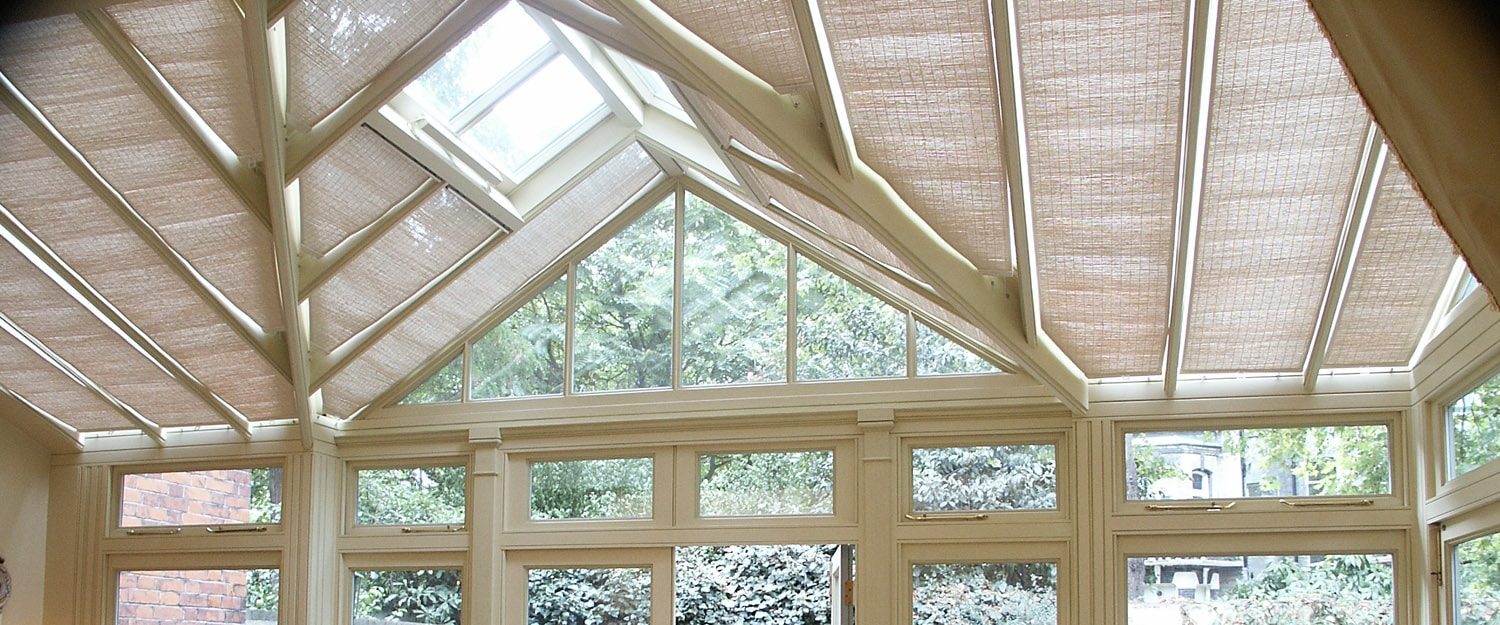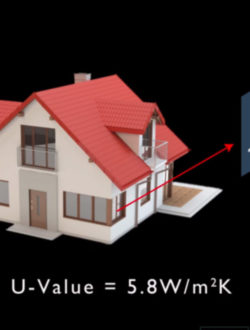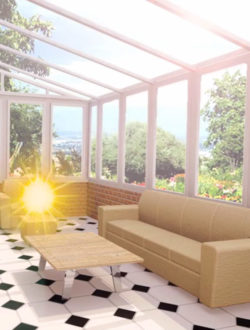Blinds, shutters and awnings help you to get the best and most comfortable use out of your conservatory
The three biggest comfort issues associated with a conservatory are:
-
Too cold in the winter, and either end of the day at other times;
-
Too hot in the summer, and increasingly in spring and autumn too;
-
Too much light and glare.
Too cold?
Conservatories leak heat through glazed roofs and windows in the winter. It’s for that reason that UK building regulations do not permit conservatories to be linked to a home’s central heating system.
Modern glazing offers coatings (low-e) which help retain wanted heat – but even the best performing glass will not solve the problem of heat loss.
Blinds and shutters help to insulate the glazed parts of a conservatory by acting as an additional thermal layer. Thicker shading products, such as those constructed with air pockets like honeycomb fabrics and those with reflective coatings, are typically the best performing. It has been proven that blinds and shutters will always improve the insulating properties of glazing and windows.
Too hot?
Some glass has coatings applied to help prevent excessive heat gain from the sun. Some of this high performance glazing can achieve around 70% heat rejection – but that is still up to 30% heat transmission and on a hot summer’s day, that could still render a conservatory unusable.
The best way to keep a conservatory cool is to use external shading such as an awning, as this will prevent most of the rays from hitting the glazing. However, not all conservatory shapes lend themselves to this type of shading treatment and for that reason, the most popular form of conservatory shading in the UK is internal blinds using heat reflective coatings.
Too bright?
The sun brings many advantages – but it’s a variable force and in the summer, it can be too bright for comfort.
Some glass is tinted to help control light and glare but these tinted coatings can only do part of the job. What’s more, they are permanent coatings – if they reduce light by 50% in the summer, they’ll do the same on a dull winter’s day, making the conservatory even darker.
On the other hand, moveable shading can be raised or lowered when needed, helping to control light and glare.
What can you do?
In an ideal world, you need a glass which blocks most heat in the summer, works the opposite way in the winter and reacts to changing light levels like photochromic sunglasses. Unfortunately, such glass doesn’t exist.
As the glazing industry itself states in the report Glazing in buildings – reducing energy use:
“In practice, an optimal solar control strategy designed to maximise heat gain in winter and heat rejection in the summer through use of adaptable shading systems would reduce the UK’s housing stock use on space heating and cooling…”
You can see more resources on the links opposite.
To select the right shading for your conservatory, you need expert advice, so contact your local BBSA member.
Blinds and shutters help to improve conservatory comfort – shading just makes sense.





